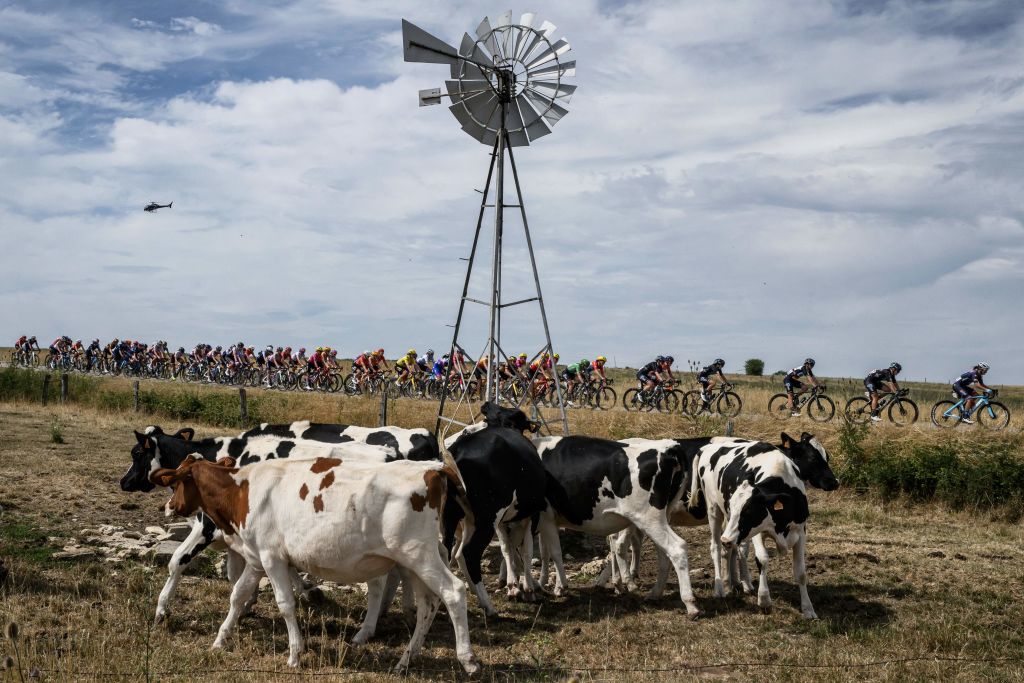The race organiser of the Flamanville UCI World Cup cyclocross race in Normandy, France has reacted angrily to claims that the region’s dairy products could have caused two riders to return positive doping tests.
The alleged link was raised by the sports management agency for Belgian racers Toon Aerts and Shari Bossuyt, both of whom tested positive for Letrozole during events in Normandy.
Letrozole is reportedly used by some farmers to synchronise cows’ estrus for fertilisation and the agency warned its riders not to consume milk and other dairy products during the Flamanville World Cup, which took place this weekend.
However, race organiser Stéphane Leclère roundly rejected the latest highlighting of the alleged link, saying it was merely a publicity stunt timed to coincide with the World Cup round.
“They already brought that idea up in the past,” Leclère told Ouest-France. “And as president of the race organisation, it’s not up to me to take up a position on it, but the [anti-doping] analysis showed up certain things.”
“I’m no specialist in the matter, but as a Norman myself, it’s the first time I’ve ever heard of this product, and to the best of my knowledge, no rider from this region has ever tested positive or been accused of doping because of Normandy’s dairy products. God knows we consume enough of them!”
Both riders tested positive for the breast cancer drug Letrozole after racing in the region. Aerts’ positive came after the Flamanville World Cup on January 16, 2022, and Bossuyt was racing at the Tour de Normandie Féminin on March 19, 2023, when she tested positive.
“We still base this on our hypothesis that Toon and Shari tested positive after consuming dairy products in Flamanville. Their files show too many similarities to neglect this,” the rider’s management company said in its statement.
“Letrozole Metabolite may be present in cow’s milk. Our hypothesis is that their positive test is due to this, but this has not been confirmed by laboratory analyses.”
Leclère, on the other hand, argued that he believed the agency’s warning was deliberately timed to “come up again exactly two years later, during our World Cup weekend. It’s a controversy designed to make people talk about them.”
Aerts received a two-year ban for his positive, which is due to end shortly, while a definitive verdict on Bossuyt’s case has not yet been reached.
Click Here to Read the Full Original Article at CyclingNews RSS Feed…

